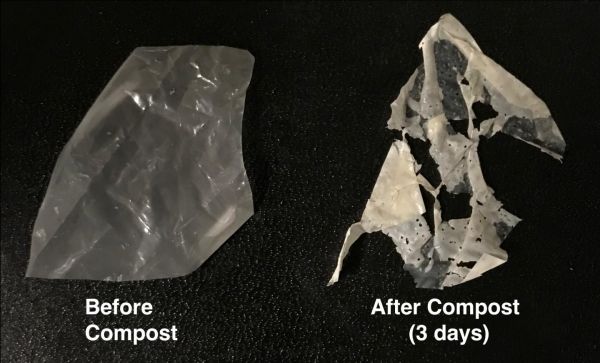With Army funding, scientists invented a way to make compostable plastics break down within a few weeks with just heat and water. This advance will potentially solve waste management challenges at forward operating bases and offer additional technological advances for American Soldiers.
The new process, developed by researchers at University of California, Berkeley and the University of Massachusetts Amherst, involves embedding polyester-eating enzymes in the plastic as it's made.
When exposed to heat and water, an enzyme shrugs off its polymer shroud and starts chomping the plastic polymer into its building blocks — in the case of biodegradable plastics, which are made primarily of the polyester known as polylactic acid, or PLA, it reduces it to lactic acid that can feed the soil microbes in compost. The polymer wrapping also degrades.
The process, published in Nature, eliminates microplastics, a byproduct of many chemical degradation processes and a pollutant in its own right. Up to 98% of the plastic made using this technique degrades into small molecules.
Read more at U.S. Army Research Laboratory
Image: With Army funding, scientists invent a way to make compostable plastics break down within a few weeks with just heat and water, potentially solving waste management challenges at forward operating bases and offering additional technological advances for Soldiers. (Credit: Courtesy University of California, Berkeley)


